Going from Driver to Entrepreneur, How This Assamese woman Empowered 10,000 More
“There was no time for blame or self-pity. I just had to cope and manage changing situations all the time.”
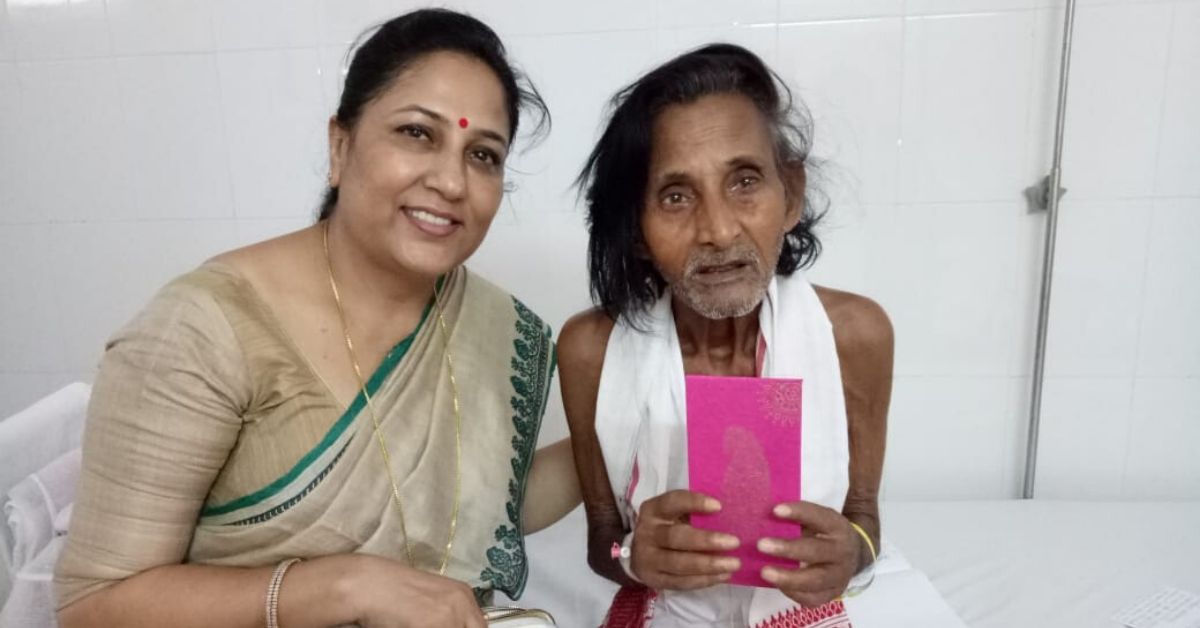
Assam, in the late 1970s and 80s, was rife with social unrest and conflict over the issue of illegal immigrants. Mandira Baruah was all of 16 when none other than her school principal brought a marriage proposal for the girl to her family in Jorhat. She vouched for a very cultured family in Tezpur who were related to her. The boy was a civil servant and the family was progressive.
Although not of marriageable age, she said that Mandira would be encouraged to complete her education and go for higher studies. Given the uncertain times in the state, settling a young and beautiful daughter was a wise decision, she advised.
Mandira agreed, and the wedding was solemnised.
On the night of the wedding, her mother-in-law handed her two things – keys to the household and a life insurance policy.
Her husband had a heart condition, and Mandira was expected to take charge, just as her mother-in-law had done for all these years.
As she walked to her bedroom in a daze, unsure how to respond to this news, her husband looked at her sheepishly, admitting that he could not stand up to his mother and her intense desire to see him married. But Mandira was free to walk away and nullify the marriage since it really wasn’t fair to expect her to commit to a situation that was only going to go downhill.
Mandira had to make a choice. And she did.
She stayed.
Testing nerves and patience while coping with complexities
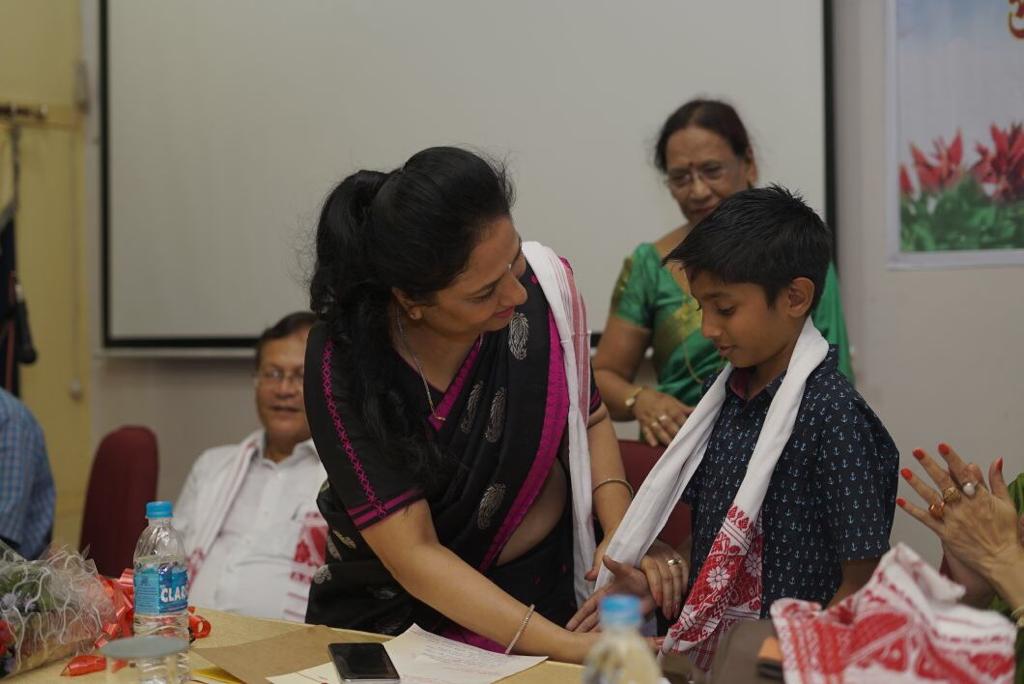
As an Executive Engineer in the Department of Water Resources of the Government of Assam, her husband was well placed. In the initial years of marriage, his medical condition was manageable. It was when he began to find it hard to walk and move, that his health began to deteriorate.
Before they could celebrate their 10th wedding anniversary, he was advised bed rest and to work from home. She devoted the next decade of her life in caring for her husband and bringing up their son.
“There was no time for blame or self-pity. I just had to cope and manage changing situations all the time,” she recalls.
She realised that finances were a constraint, and with time, cash reserves too began to dwindle.
Their family house was mortgaged and had to be sold. They shifted to a smaller place on rent. She could not pick up a job because she had to be at home, fulfilling her domestic duties and caring for her husband, infant son and a dependent mother-in-law.
Being self respecting and private, she did not reach out to her parents and family, not wanting them to live with the guilt of making a wrong decision for their only daughter. In hindsight, Mandira feels this helped her realise early in her marriage that she could only depend on herself and that she would have to step up and do whatever was required to keep her family afloat.
Her husband was on a wheelchair and needed nursing care. He had to be taken to the hospital for an ECG scan, injections, and medication, daily. Unable to afford a full-time nurse, Mandira took up a short training under the guidance of Dr Noren Dutta, a doctor in a local hospital. She doubled up to be a nurse and caregiver, apart from being the cook, cleaner, gardener, babysitter, elder caregiver and home entrepreneur. She even worked part time as a Cardiology assistant under a senior specialist.
To earn some additional income, she tried her hand at several home businesses like baking, flower arrangements, and organising birthday parties. She also learnt driving and took a loan to buy an SUV. This would make it easier for her to take her husband for his check-ups and accommodate his wheelchair.
Around this time, she made a bold decision. She decided to sign up as a cab driver for late evening and early morning rides. Once, she was hailed to drop a customer to the airport and reached his pick-up point two minutes late. He screamed at her all through the ride even though they made it to the airport on time. She later found that he was a local politician.
With each such incident and exposure to the world, Mandira got the confidence of dealing with different kinds of people, achieving small goals, and most importantly, making the stretch in her abilities.
She says, “I realised that I had to constantly challenge myself and do things I could never have dreamt of doing, so that I could achieve my goal, which was to safeguard the interests of my family with my self-respect intact.”
Working her way up from ground-zero
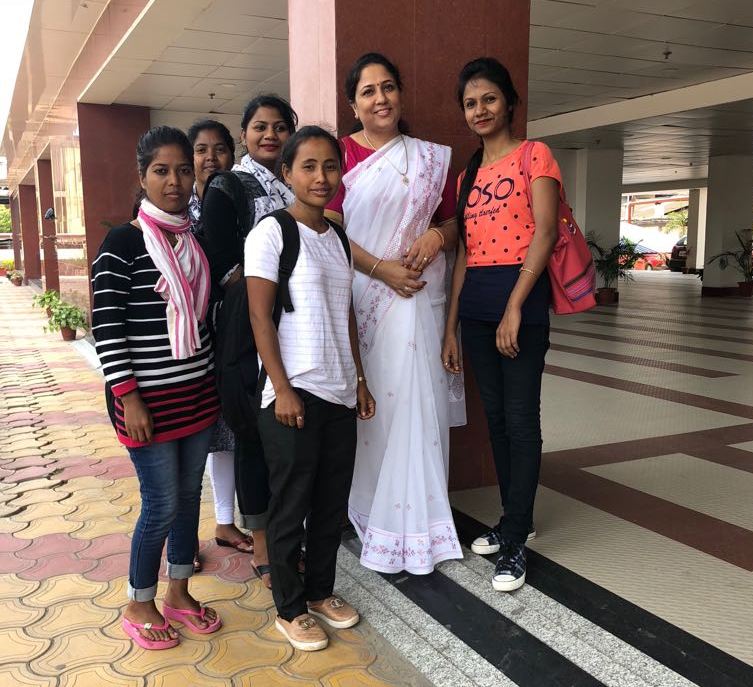
As a 28-year-old simple housewife, she once went to the District Collector’s office without an appointment and insisted on meeting him. When she was granted an audience, she told him of her situation and how she was supporting her sick husband, her mother-in-law, and an infant, and that she had no money to pay the rent for their home. The official accommodation which her husband was entitled to had not been given to them despite being in the queue for so many years.
She told him point blank that she was not leaving his office without a resolution to her problem.
The official was compassionate; he consulted a few officials and told her that they could give her an isolated piece of land on which she could build her home and live there till her husband’s retirement and then return it to them.
Mandira took this up as a challenge. She spent six months creating a little oasis with flower beds, a vegetable garden, and a tiny cottage that she tended to single-handedly. People began to come from nearby areas to see what she had created out of a barren piece of land in a secluded spot.
The wave of sympathy and praise that came her way made her realise that she could indeed create something of value and merit. This set her thinking about how she could help other women like her. Thus, the idea of Satsaree was born.
So when the time came for her to vacate the house after her husband’s death in 2001, she was ready to launch ‘Satsaree’. It ‘integrity and dignity’ and was a befitting name for her NGO, which was dedicated to empowering women with knowledge, skills, and resources to help improve their lives.
Registered in 2002, Satsaree grew organically, getting funding and support from a host of patrons along the way. Mandira recounts, “I just kept doing what made sense to me, responding to the needs of the women around me. I was quite oblivious of the number of women that Satsaree was reaching and was astounded when my team told me in 2010 that we had reached over 10,000 women.”
Quick at seeding and implementing ideas
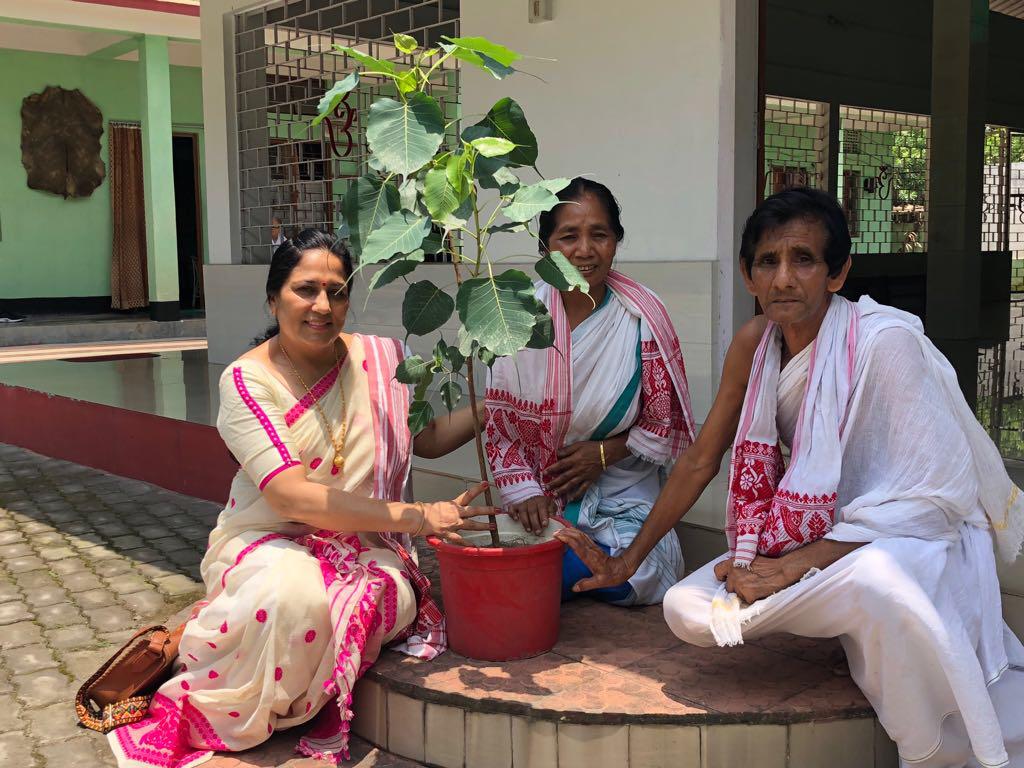
When girls from nearby villages started coming to her, requesting to be hired for respectable jobs, she drew from her own experience and thought of training them in basic nursing care.
She set up ‘Mandira Solutions’ where girls were trained and employed in residences, nursing homes, old-age homes and other institutions. Set up in 2010, it trained 25-30 girls every year. The nursing school provided her with financial security while keeping her free to pursue other initiatives.
Having been a cab driver, much before Uber and Ola came into the market, she knew there was scope in ferrying people to the airport. She pressed two more cars into service, to take care of the increasing demand, pumping the money back into the NGO. Many women took to driving, shunning societal conditioning and feeling proud of successfully storming male bastions.
Two of the cab drivers hired by Mandira, Krishna Kanta Pathak and Rinku Deka, went on to start their own travel agency. Rinku recounts, “Who would have thought we would be entrepreneurs one day? By having faith in our abilities, Mandira baideo (elder sister) made us believe in ourselves, and the rest, as they say, is history.”
Mandira’s taxi service eventually transitioned into a travel agency which is presently run by her son.
From capacity building and training to awareness programmes and advocacy to providing relief, she expanded her network to reach more women by connecting with resident welfare associations, schools, universities, state government and other NGOs. Arranging funds for activities that were ongoing and not project-based was a challenge.
To date, Mandira diverts her own savings to sustain the momentum of her work which is owned by a group of past and present members. For her, it is important to keep the Satsaree flag hoisted.
As the word spread, more people joined the NGO in different capacities. Some provided expertise and services, others came in to give motivational talks and many offered to fund projects, special drives and public events. Assam State Culture and Women and Child Development departments regularly step forward to disburse funds for campaigns and other mass mobilisation activities.
Dr Pratima Devi Sharma, an office bearer with Satsaree until recently, says, “The unique thing about this NGO is the charismatic personality of Mandira Baruah and her inspiring story. She has built this single-handedly like everything else in her life. It would not be an exaggeration to say that the neglected girls and women of Assam see her as a role model and feel that if they are associated with her, they too will be able to fix all the wrongs in their life. This is a powerful and mystical force that is keeping Satsaree in fine fettle.”
In 2018, Satsaree earned the unique distinction of a world record with the highest number of women participants in the annual Bihu dance in October, a popular festival in Assam.
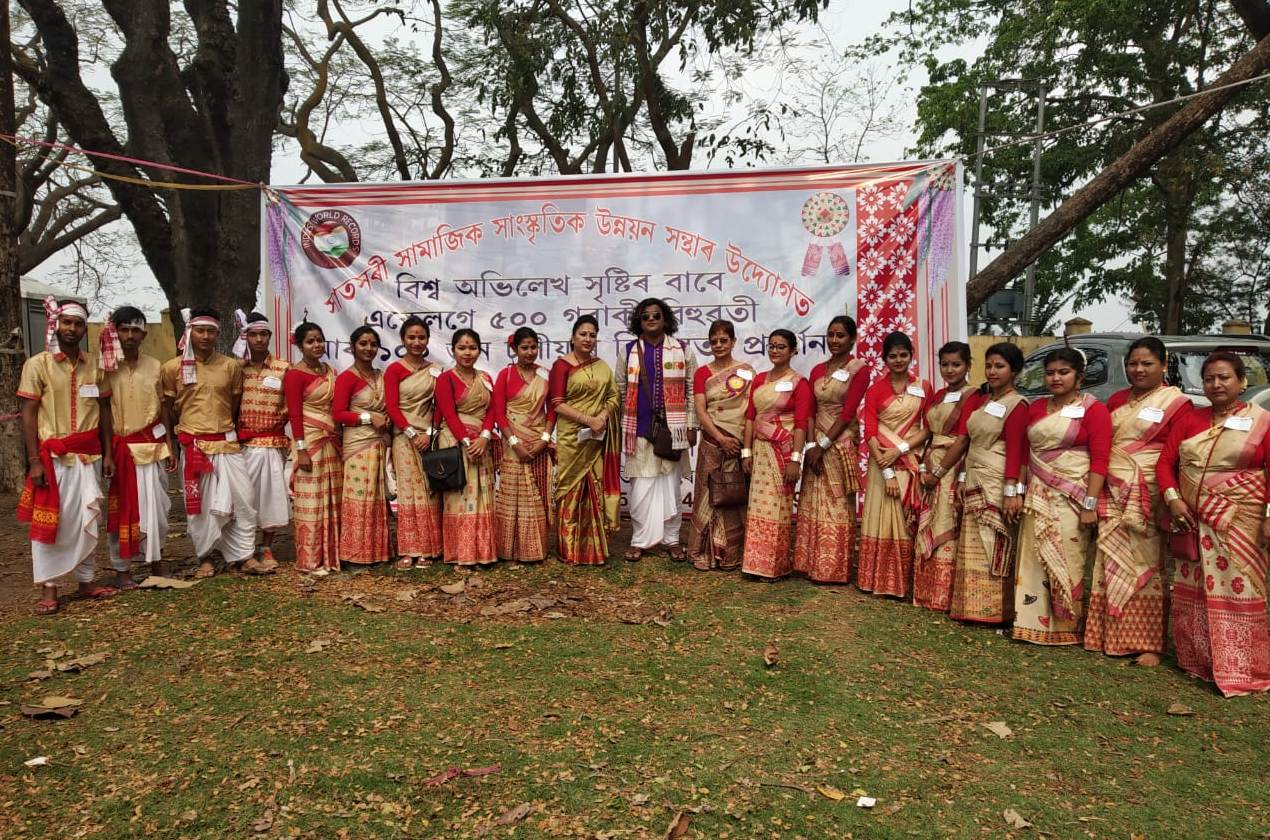
Mandira explains, “It was my dream to bring our rich Assamese culture to a more international platform and show the world how beautiful, musical and festive it is, and how it brings men, women and children together.”
She composed a special set of songs and began rehearsals in her courtyard with 7-10 girls. Videos were made and forwarded to different NGOs across the state. Responses poured in, expressing interest to be a part of the main event.
Mandira and her team visited villages in the Upper Assam area. Through more than 60 cultural organisations and other social networks, she mobilised girls and women who could spread the message of “women standing by one another in their hour of need” using the medium of song and dance.
On 31 March 2019, Satsaree organised the performance of 700 nasoni (female Bihu dancers) and 150 dhuliya (male Bihu dancers) and performed live in Guwahati. This world record will be mentioned in the Guinness Book of World Records 2020.
A role model for women
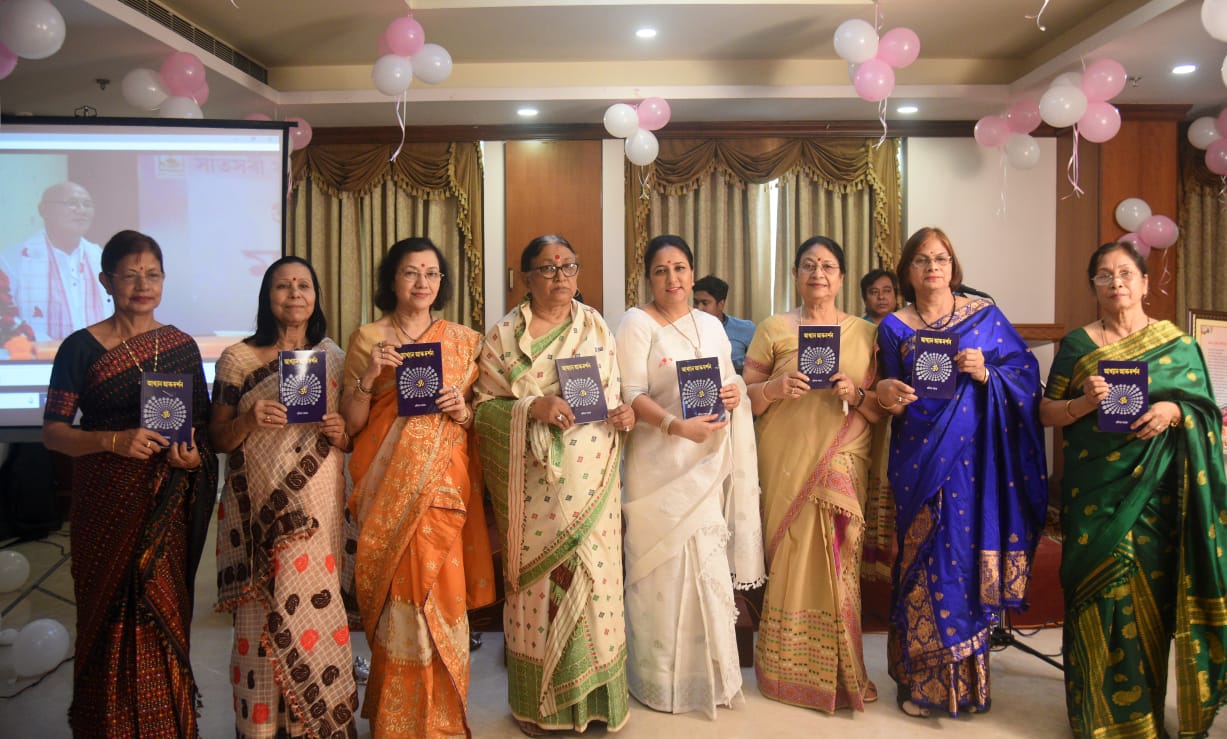
Today, Satsaree has found employment for over 5,000 women through direct and indirect ways. It has given them the confidence to fight their own battles, to deal with exploitation, to say ‘no’ to dowry, to stand up to harassment and domestic abuse, to report cases of sexual abuse and any other violations.
Ghunasa Deka was associated with Satsaree around 2006 for a few years and availed of several of its facilities and services including the course on nursing. Today, she is head nurse at the district Public Health Centre in Sonapur, Assam. She says, “A woman-led organisation provides a strong sense of comfort to women who have no more doors left to knock on. Satsaree has always embraced women of all backgrounds and religions and has done its bit to put them back on their feet. We need many more such organisations because there are still countless women who are afraid to step out and seek help.”
51-year old Mandira Baruah is a known face and name in Assam, called upon to inaugurate functions and ceremonies. She is frequently invited on television talk shows. Her only regret is her inability to converse in English, which she hopes to overcome. The future plan of Satsaree is to make more women economically stable, and mentally and physically healthy. She is hopeful that young Assamese girls will continue to take pride in their art and culture and not let it fade away in the name of modernity.
Also Read: More Than a Towel: How Assam’s ‘Gamosa’ Made It to The Guinness World Records!
At times, she gets overwhelmed with the attention she receives. However, one validation that came her way remains special in her heart–it was a phone call from the same politician who had given her a mouthful for delaying his airport drop by two minutes; he apologised to her for his impatience and said he held her in very high regard for everything she did. That, to Mandira, summed up everything she stood for.
Although her husband is no longer alive, she has maintained cordial relations with her mother-in-law and has no ill-feeling towards anyone.
(Written by Taru Bahl and Edited by Shruti Singhal)
Like this story? Or have something to share?
Write to us: [email protected]
Connect with us on Facebook and Twitter.
If you found our stories insightful, informative, or even just enjoyable, we invite you to consider making a voluntary payment to support the work we do at The Better India. Your contribution helps us continue producing quality content that educates, inspires, and drives positive change.
Choose one of the payment options below for your contribution-
By paying for the stories you value, you directly contribute to sustaining our efforts focused on making a difference in the world. Together, let’s ensure that impactful stories continue to be told and shared, enriching lives and communities alike.
Thank you for your support. Here are some frequently asked questions you might find helpful to know why you are contributing?


This story made me
-
97
-
121
-
89
-
167













